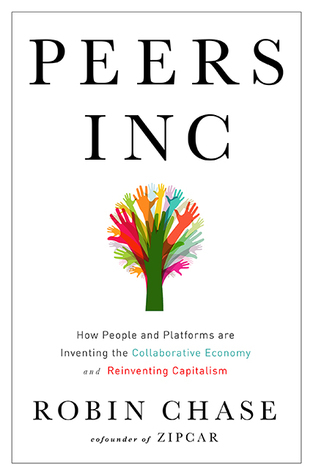What do you think?
Rate this book


304 pages, Hardcover
First published May 7, 2015
While industrial capitalism evolved to put the corporation's survival at the center, the collaborative economy thrives by putting people at the center....The Peers Inc paradigm, with its different structure and means of value creation, will play an important role in transitioning world economies to a new value system and a new way of measuring prosperity.
The fact that someone sees this in our future gives me hope.Our past emphasis on ownership stemmed from our fear of scarcity. But the more we experience the availability, viability, and superiority of pooled resources, the more we will trust ourselves to share rather than own, give when we get, and teach when we learn. Imagine the feeling of potential in a world where so much is easily accessible in a huge shared network. Even things that were once considered "rivalrous" - where one person's use would diminish another's ability to enjoy it - are actually not rivalrous when you put them into a big enough pool. Zipcar is the proof of this.